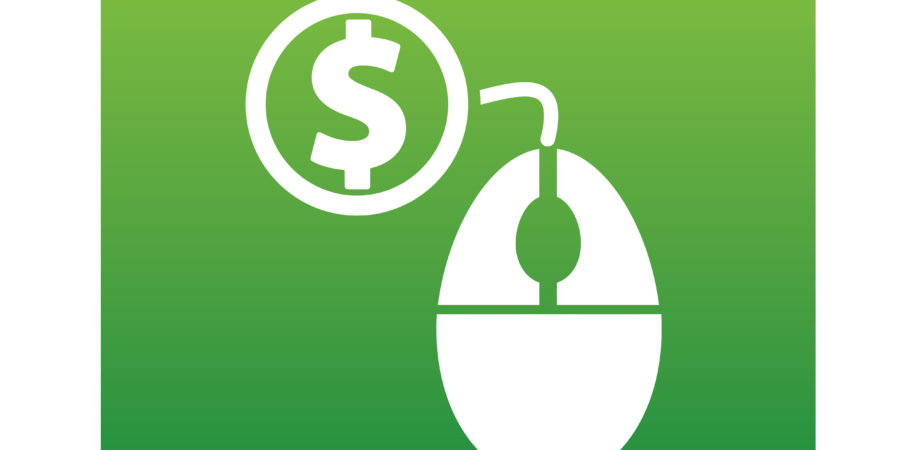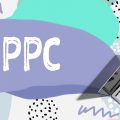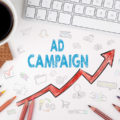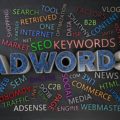Hit Pay Dirt with Pay-Per-Click
What is Pay Per Click?
Up until now, your Digital Marketing Plan has been evolving along with the needs of your online business. What to do next can be as confusing as a fork in the road without signposts. There are so many specialized areas of expertise all attempting to lead a targeted audience to your website, keep them engaged and, ultimately, sell something.
Pay per click advertising (PPC) is one of those specialties.
It’s no secret search engines like Google, Bing and Yahoo allow businesses to buy a top position in their search results. These listings are clearly designated as paid advertising and appear to the side or above the naturally ranking non-paid “organic’ results. When you contract to purchase a PPC position, every time a user clicks on the ‘Ad’ or sponsored listing, the search engine gets paid the current Cost Per Click (CPC) you elected.
It’s a little like the hotel clerk who refers tourists to a fabulous Italian place right down the street. When the guests say “Joe sent us” (wink, wink), they get a free cannoli and the clerk gets a little something for delivering hungry diners.
It’s The Conversions That Count
The endgame of a click is a conversion, the point at which a just-browsing visitor takes a desired action. Here are just a few examples of desired conversions:
- Makes a purchase

- Completes a form
- Downloads a white paper
- Registers for a webinar
- Signs up for more information
Basically, PPC is the price you pay to bring people looking for your product or service to the point where it is right in front of them. Sound good so far? Moving to the top of the search results and only paying when someone clicks through to your site can be highly desirable. And how much extra could it possibly cost? As you will see after reading this eBook, to avoid spending a fortune with little or no return, it’s best to enlist the services of professional PPC management.
Taking Your First 3 Steps
It’s not quite as simple as calling up Google and saying sign me up for PPC. These coveted spots are actually auctioned off to the highest bidder, well sort of. Here are the ducks you’ll need to get in a row:
-
The Bid
 Depending on the budget and how much you’ve apportioned for this new (to you) segment of advertising, you tell the search engine how much you’re willing to pay per click. Paying $1.00 for a $20.00 sale sounds great. But remember only a small percentage, maybe 2%, of the clicks will actually convert to sales. (You’ll learn more about that later.) Bid the most and you have a chance of ranking number 1 in the list. For example, if you bid $2.00 maximum on the keyword ‘suncatchers’ and that’s the highest bid, you’re on your way to being first in line.
Depending on the budget and how much you’ve apportioned for this new (to you) segment of advertising, you tell the search engine how much you’re willing to pay per click. Paying $1.00 for a $20.00 sale sounds great. But remember only a small percentage, maybe 2%, of the clicks will actually convert to sales. (You’ll learn more about that later.) Bid the most and you have a chance of ranking number 1 in the list. For example, if you bid $2.00 maximum on the keyword ‘suncatchers’ and that’s the highest bid, you’re on your way to being first in line.
-
Long-tail Keywords
 The bid alone does not lock in your position. Your choice of keywords plays a big part in how you are deemed ad-worthy. Shorter, generic keywords such as ‘shoes,’ ‘plumbers,’ ‘hair salons’) have more people vying for them thereby driving up the competitions and cost per click.
The bid alone does not lock in your position. Your choice of keywords plays a big part in how you are deemed ad-worthy. Shorter, generic keywords such as ‘shoes,’ ‘plumbers,’ ‘hair salons’) have more people vying for them thereby driving up the competitions and cost per click.
With such a broad category, even if someone clicks on your ad, the chance of them eventually making a purchase (conversion) is low. Generating traffic for a deeper, specific phrase may actually cost less per click. For example, you might want to forego the top bid for ‘sunglasses’ in exchange for ‘tortoiseshell Jackie O shades,’ a less expensive, more targeted alternative. These are called long-tail keywords in the industry.
Google, Bing and other PPC platforms will show you estimated cost per click and total daily searches for keywords.There are hundreds of long-tail, highly relevant keywords that could be driving traffic for less money. It’s important to spend time developing an effective PPC keyword list that is:
- Relevant– If you’re selling stuffed animals don’t use the keyword “bears”
- Comprehensive— Include negative keywords, see below
- Evolving-– Constantly refine and expand your campaigns with new offerings and promotions
-
Your Quality Score
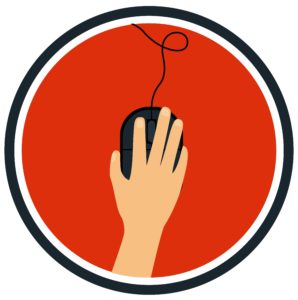 In addition to the amount of your bid and precise selection of your keywords, search engines consider one more thing before awarding the ultimate top-of-the-heap spot.
In addition to the amount of your bid and precise selection of your keywords, search engines consider one more thing before awarding the ultimate top-of-the-heap spot.
The Quality Score rates ability to prepare relevant, intelligent ads and targeted, product-specific landing pages. It also looks at how the website measures results. When you go to the dentist and he’s using the latest laser technology, you’re impressed. It’s the same way by impressing search engines with state of the art website metrics.
A high Quality Score can reduce costs up to 30% whereas a low score can disqualify you altogether. Make sure the following factors are best in class:
- Ad wording
- Keywords
- Landing page
- Usage metrics
Advantages of PPC Marketing
 Increased traffic. Pay per click advertising generates traffic right away, within 24 hours in some cases. If users are searching for your particular phrases and you’ve placed a well-written ad, you will get clicks the moment the ad goes live.
Increased traffic. Pay per click advertising generates traffic right away, within 24 hours in some cases. If users are searching for your particular phrases and you’ve placed a well-written ad, you will get clicks the moment the ad goes live.
Easy pivots. If consumer interest changes suddenly (there’s a big demand for Donald Trump bobbleheads), you can adjust most pay per click campaigns in hours or days.
Less expensive. The PPC experts can help find keyword niches not everyone is rushing to bid on. (See long-tail keywords above.) This could result in the best bargain of the year.
Remarketing: You can create audiences and target users who have visited but haven’t bought with tailored ads, including images and videos. If you want to get those people to come back and make a purchase, this can be a cost-effective tactic.
PPC Works Best For:
 Campaigns: When launching a new product or service, pay per click can quickly generate buzz. You can start a campaign within 48 hours, and generally change the text of your ad at any time.
Campaigns: When launching a new product or service, pay per click can quickly generate buzz. You can start a campaign within 48 hours, and generally change the text of your ad at any time.
Online Stores: If you offer a product or service searchers can purchase the moment they arrive at your web site, pay per click is a must in your marketing arsenal. You know that each click generated is a customer ready for conversion.
B2B Promotions: For services in which the sales cycle is measured by weeks and months instead of minutes, PPC can help get noticed and acquire high-quality users. Put out an introductory offer that will leave new users and potential customers with the best first impression.
Product Listings: The product listing ads or PLA’s run horizontally across the search results highlighting your products, including a photo and color type.
4 Major Challenges of PPC Marketing
PPC can be risky if not executed correctly. If you don’t know what you’re doing, you could end up spending far more than you will ever recoup. A PPC expert can calculate your net profit based on conversion rates, price per click and number of click-throughs per month. This information is invaluable in deciding if PPC is the best use of your advertising dollars.
-
Keyword Bidding War
Highly searched words inevitably produce bidding wars because some people ‘want what they want’ and won’t give up thereby inflating the per-click cost.
-
Junk traffic
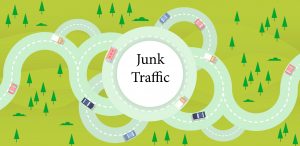
Increased traffic increases costs. Not all clicks are worth paying for. Some PPC providers distribute through search partners and content networks. When buying Google or Bing, you may not want your ads showing up and generating clicks from less relevant partners. (See Analytics below.)
-
No freebies
If you get more traffic, you pay more money in proportion to that traffic – your cost per click stays constant and your overall cost increases. Compare that to using search engine optimization techniques where you invest a set amount of time and money to build up a better ranking. Your cost per click goes down as you draw more traffic.
-
Constant monitoring
PPC is not a one-time action you take and then ignore. It requires constant vigilance or you might be outbid, miss a top vacancy or get blindsided when customer search patterns suddenly shift. Ensuring your approach is manageable will make monitoring your campaign more effective, allowing you to better identify what works.
The Answers Are in the Analytics
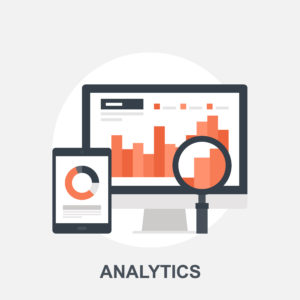 Now that you are a bit more educated about all the steps involved, and may have even decided to take the plunge, how will you know the PPC campaign is delivering the desired results? Fortunately those who have gone before have anticipated just about every problem and even come up with some solutions. There are a few key things you’ll want to do frequently, if not every day:
Now that you are a bit more educated about all the steps involved, and may have even decided to take the plunge, how will you know the PPC campaign is delivering the desired results? Fortunately those who have gone before have anticipated just about every problem and even come up with some solutions. There are a few key things you’ll want to do frequently, if not every day:
Track Conversions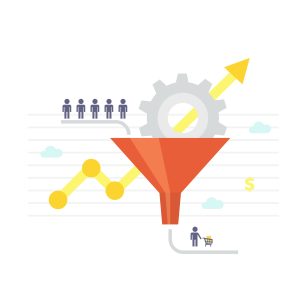
Google Analytics is a free tracking system that enables you or your PPC adviser to measure conversions, observe changes in traffic patterns and attribute sources of revenue. A customer relationship management system (CRM), does the same for tracking leads that turn into real revenue.
Switch to Local Searches
 By default, Google Adwords will run your campaign nationally. If you are a local merchant, ship to a specific area or only provide service to a designated geographic location, it is a best to customize your Location Targeting in Google Adwords. Other options specific to language targeting, ad scheduling and devices can be controlled from the Account Settings.
By default, Google Adwords will run your campaign nationally. If you are a local merchant, ship to a specific area or only provide service to a designated geographic location, it is a best to customize your Location Targeting in Google Adwords. Other options specific to language targeting, ad scheduling and devices can be controlled from the Account Settings.
Split-test the Ad Text
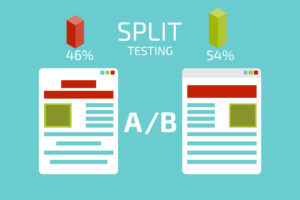 Creating multiple versions of the ad’s text for each of your PPC audiences can determine which exact wording leads to the most click throughs and on-site conversions. Opt out of predictive algorithms in favor of random displays to offer the ad variations and generate the most meaningful data.
Creating multiple versions of the ad’s text for each of your PPC audiences can determine which exact wording leads to the most click throughs and on-site conversions. Opt out of predictive algorithms in favor of random displays to offer the ad variations and generate the most meaningful data.
Avoid ‘Broad Match’ Keywords
You’re a medical firm targeting the phrase “back injuries” with a broad match ad. Your ad should appear on the results page for the search query “back doctors,” but it could also show up for the phrases “getting back at doctors,” “back injury lawsuits” or “going back to being a doctor.” In these cases, you may be wasting money on irrelevant searches.
Setting your ads to phrase or exact match might decrease your traffic potential, but help your ads to appear on search queries most relevant to your business.
Utilize Negative Keywords
 Devoting time to finding negative keywords to your PPC campaigns is one way to control relevancy without eliminating the potential traffic of broad match ads. Prevent ads from displaying whenever certain words are searched for. Adding the words “getting back at” as a negative keyword phrase within your PPC ad group would prevent your “getting back at your doctor” broad match ad from appearing in results for “back doctor.”
Devoting time to finding negative keywords to your PPC campaigns is one way to control relevancy without eliminating the potential traffic of broad match ads. Prevent ads from displaying whenever certain words are searched for. Adding the words “getting back at” as a negative keyword phrase within your PPC ad group would prevent your “getting back at your doctor” broad match ad from appearing in results for “back doctor.”
Organic vs. Pay-Per-Click
Organic search engine optimization leading to a higher ranking is a concerted effort carried out over months if not years. It’s a proven technique to grow a company’s brand and image. Pay-per-click advertising, on the other hand, is more immediate and quantifiable. Clicks can lead to conversions quickly.
However, a lot of thought and effort must go into building a winning PPC campaign. To recap:
- Research the right keywords organized into ongoing campaigns and ad groups
- Set up PPC landing pages that directly show products and encourage purchases
- Monitor with the right analytics to stop the bleeding if a consumer trend suddenly shifts
If it’s time to think about getting your website ranked higher on Google to bring new traffic to your site, a Pay Per Click campaign may be the exact online marketing strategy your company needs. We hope you’ll consider the iwebcontent team to manage your pay-per-click efforts. Our PPC experts can guide you every click of the way!
